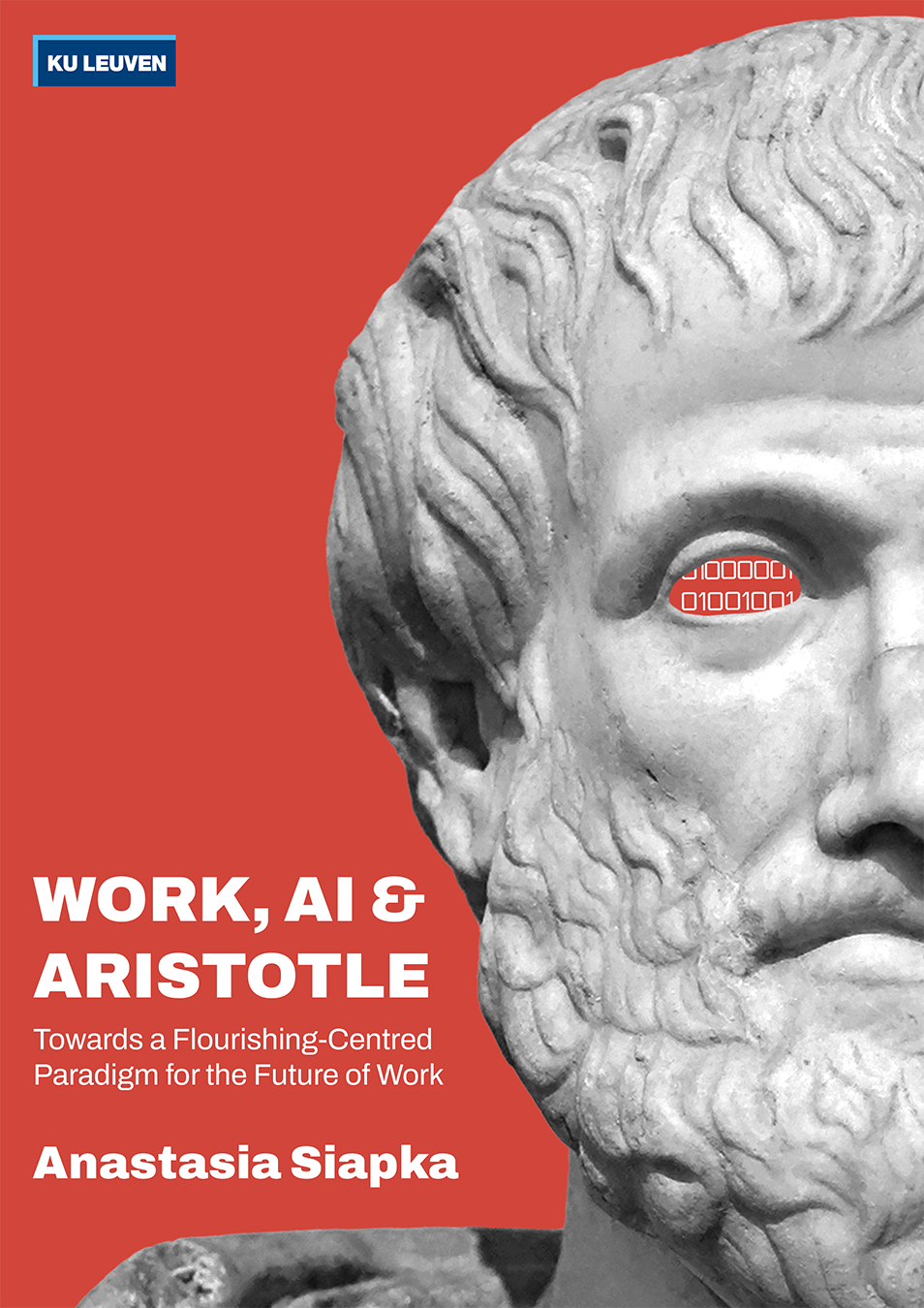WORK, AI & ARISTOTLE
Towards a Flourishing-Centred Paradigm for the Future of Work
Recent advances in Artificial Intelligence (AI) have rekindled fears of a workless future. Especially after COVID-19, media headlines portend an AI apocalypse that will ‘steal’, ‘kill’, or ‘destroy’ our jobs. This ‘future of work’ debate is saturated with predictions of the number or types of jobs threatened by automation, comparisons between AI’s benefits and risks, and assessments that overlook the value of a life beyond work. Instead, I argue that AI-driven automation is prima facie desirable insofar as it serves humans’ flourishing and, subsequently, their engagement in leisure and virtue.
The thesis begins with the main dimensions of this debate: work and technology. It offers a conceptual and axiological analysis of work, followed by a historical exposition of its transformation through technology and an overview of the main arguments regarding its automation by AI. With the aim of informing AI governance, I make the case for a normative paradigm based on Aristotle’s ethics and politics. In discussing the building blocks of such a paradigm, I identify human flourishing as the key evaluative criterion and, accordingly, the ultimate objective of law and policy. Hence, virtue jurisprudence and the capability approach, as adaptations of the paradigm in the legal and political order, respectively, are applied to the future of work debate. Having addressed objections against both applications, the thesis ends by assessing the merits and limitations of the paradigm and formulating recommendations for researchers, law- and policy-makers, technologists, educators, and citizens.
Overall, being grounded in Aristotelian flourishing, this paradigm departs from the predictive, utilitarian, and work-centred ones prevalent in the literature, promising a distinct perspective on what AI promises to liberate us from and towards.
Supervisor: Professor Anton Vedder
